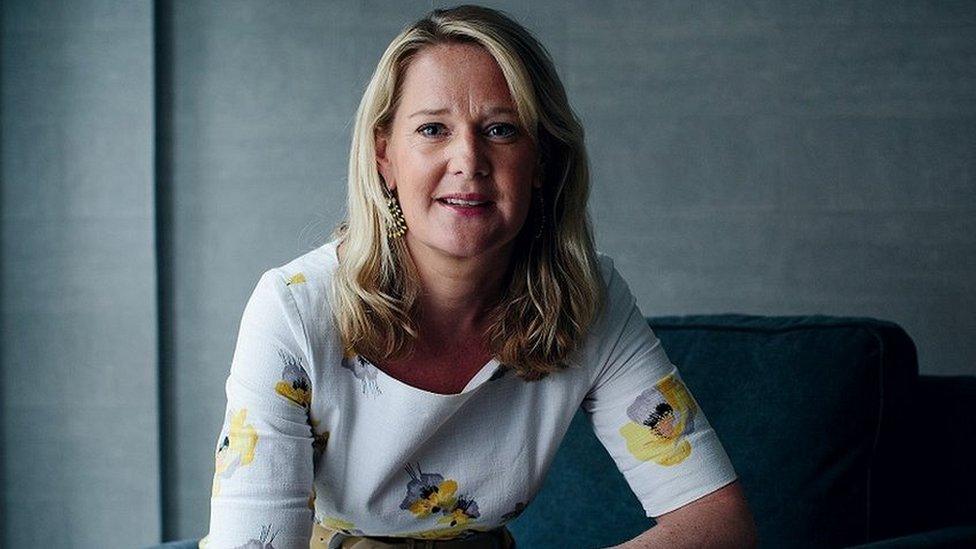Cardiff company offers unlimited holidays to reward staff
- Published

Staff could take an extended break following the move
A production company has introduced "unlimited" annual leave in a bid to reward staff and maximise productivity.
Big companies such as Netflix, LinkedIn and Goldman Sachs have introduced some unlimited paid holiday leave in recent years.
Cardiff-based EatSleep Media, which has 13 staff, said it was about "giving power back" to them.
An expert said empowering employees improved morale, but clear expectations were necessary.
EatSleep, which makes documentaries, podcasts and online videos, said it asked its team to work "very flexibly", including on evenings, weekends and sometimes abroad.
Co-founder Alex Feeney said: "We ask a lot of them, and there are some long days in there, so to not offer some flexibility in return didn't seem quite right."
He said they always told new staff "we're not here to parent them" and that they want employees to be treated like adults in their work.

Company co-founder Alex Feeney said the move is reward for the hard work of staff
"So, if we're empowering them to do that, why wouldn't we do that with other aspects of the work-life balance?" he said.
He added when staff came to the end of a big project they could be a bit "fried" and the firm didn't want them to worry about whether they could then book time off or whether they needed to save annual leave.
Mr Feeney said it was about "giving power back to our team" based on their needs and "where the company is at the time".
"We want people to be able to go: 'Do you know what - I'm going to take that day, because I deserve it'. Or 'I'm going to take that day I feel a bit fried', or 'I'm going to take that week because I've looked at the workflow and things are a bit quiet'."
He said it also "simplified the process" for the company, as they no longer needed to keep track of things like time in lieu.
Unlimited paid time off (UPTO) originated at small Silicon Valley start-ups and has become much more common in recent years.

Prof Christie believes empowering employees improves moral
But the concept is still quite rare, with data from a 2021 survey suggesting just 4% of US companies offer it.
And what sounds like a boundless benefit does often come with caveats.
Mr Feeney said no-one at EatSleep had yet booked off a longer period of leave, such as a month to three months, and while such a large single block wasn't "beyond the bounds of possibility" it would need to be considered against the needs of the company.
Prof Michael Christie, of Aberystwyth University's Business School, said UPTO was not "more widespread" at the moment, but was part of a broader movement towards more flexible working practices post Covid.
"If employers start reducing the constraints of defined working hours - so rather than saying you have to work nine to five, five days a week - by being more flexible, that allows employees to manage their commitments," he said.
"Empowering employees also improves morale. You don't feel like you're being told to do X, Y and Z - and it allows people to take control of their situations."
'Reverse psychology'
While the idea has been embraced by some businesses, others have experimented with UPTO, only to end the policy and revert to original holiday arrangements.
A 2018 survey showed workers with UPTO took fewer holidays than those with a fixed allocation.
Prof Christie said there was evidence employees often don't take enough holiday with UPTO and it was necessary for a minimum amount of leave to be set.
He said there also needed to be "a clearly defined expectation" in a UPTO workplace around the practical limits of how much leave someone could actually take against a company's demands.
"As an employer, you need to make sure your employees are aware of their commitments to that firm," he said.
Mr Feeney said there had been a range of responses to the scheme at EatSleep from people outside the company, including some asking for a job and others dismissing it as part of "snowflake culture".
He added the company's research of others who tried and failed with UPTO had found some workers felt "obliged not to take time off" because co-workers had not.
Mr Feeney said: "It's like a reverse psychology effect and we're really aware of that. We really want people to take that holiday because we appreciate that they come back refreshed, recharged and ready for the next project."
He said they had set a lower limit of leave and that in some cases they'd tell people to take leave if they hadn't booked any.
Mr Feeney said it was important for every company to do what worked for them and UPTO wouldn't fit with every business.

HAYLEY PEARCE PODCAST: Tackling the issues that make the group chats go off
IN MY SKIN: A bittersweet story with Welsh wit and grit

Related topics
- Published4 February 2022

- Published19 November 2021
